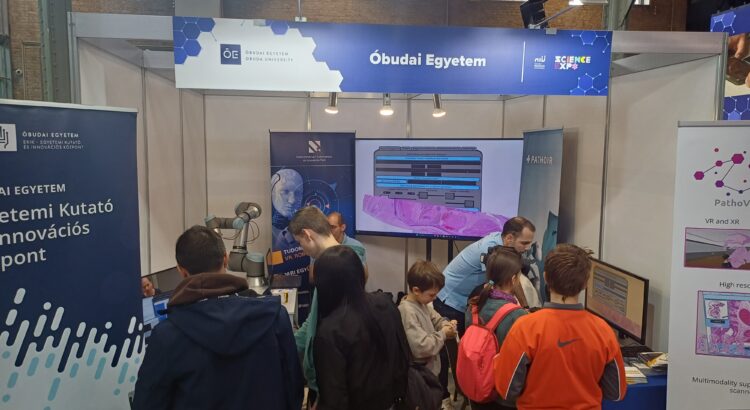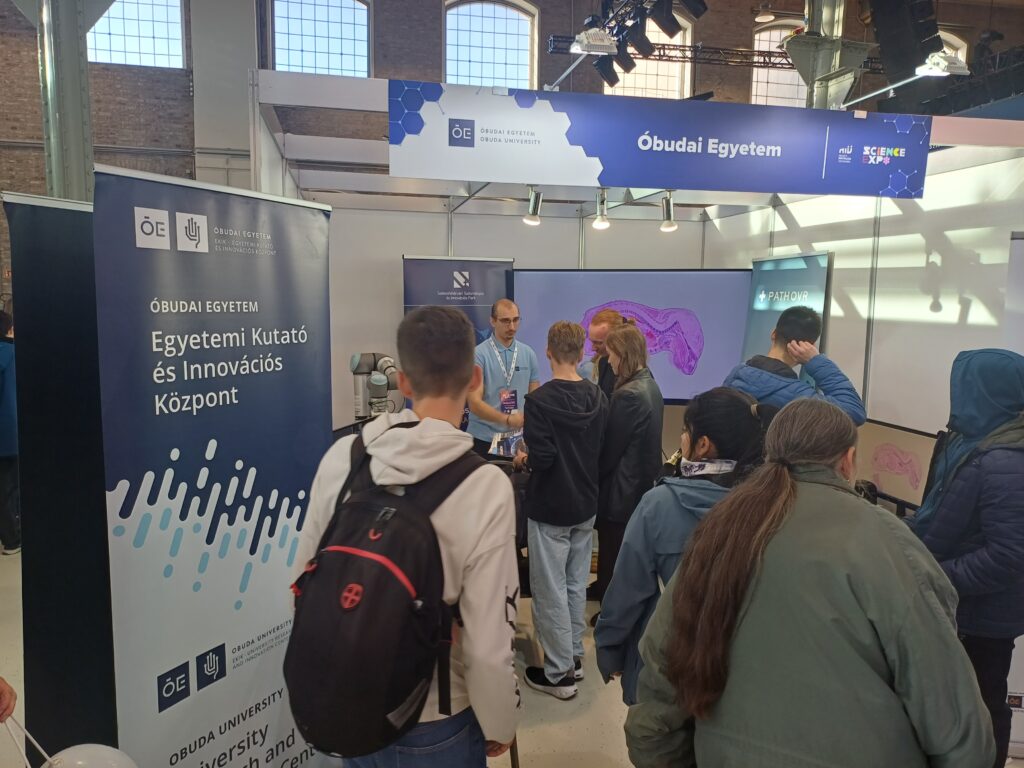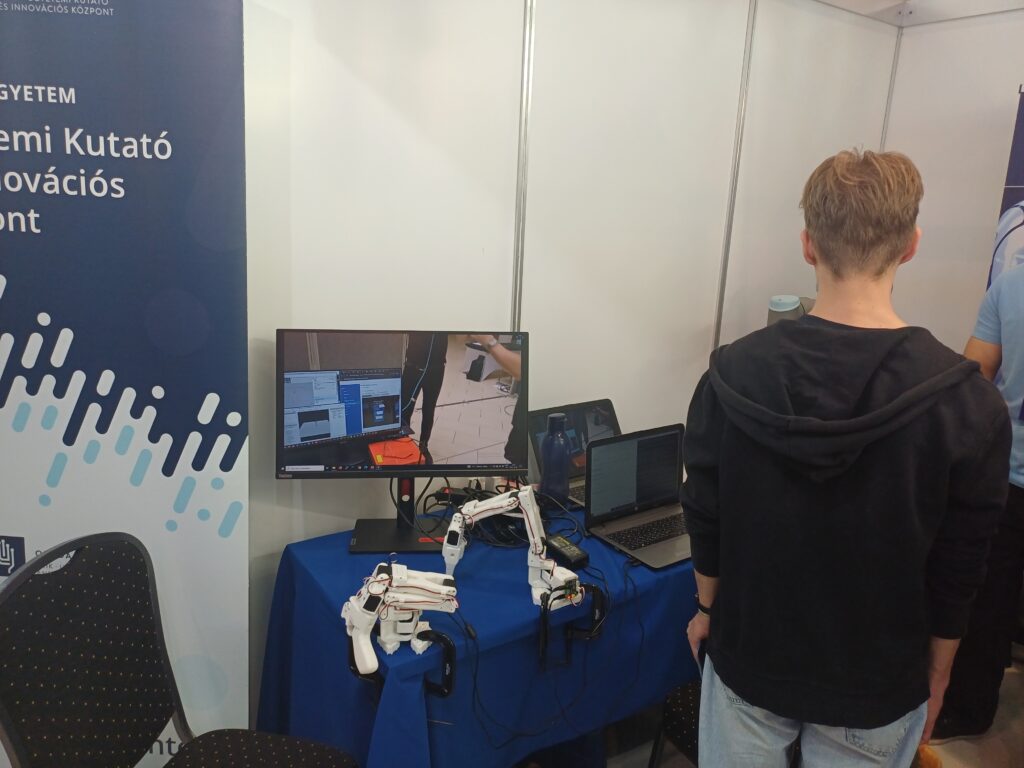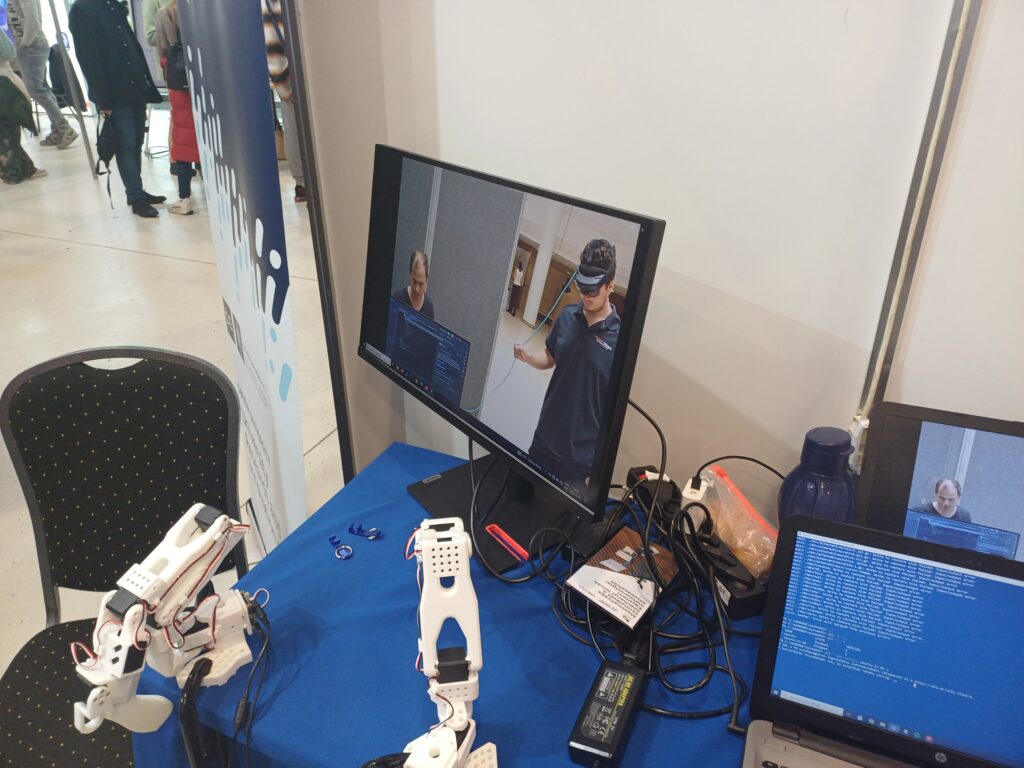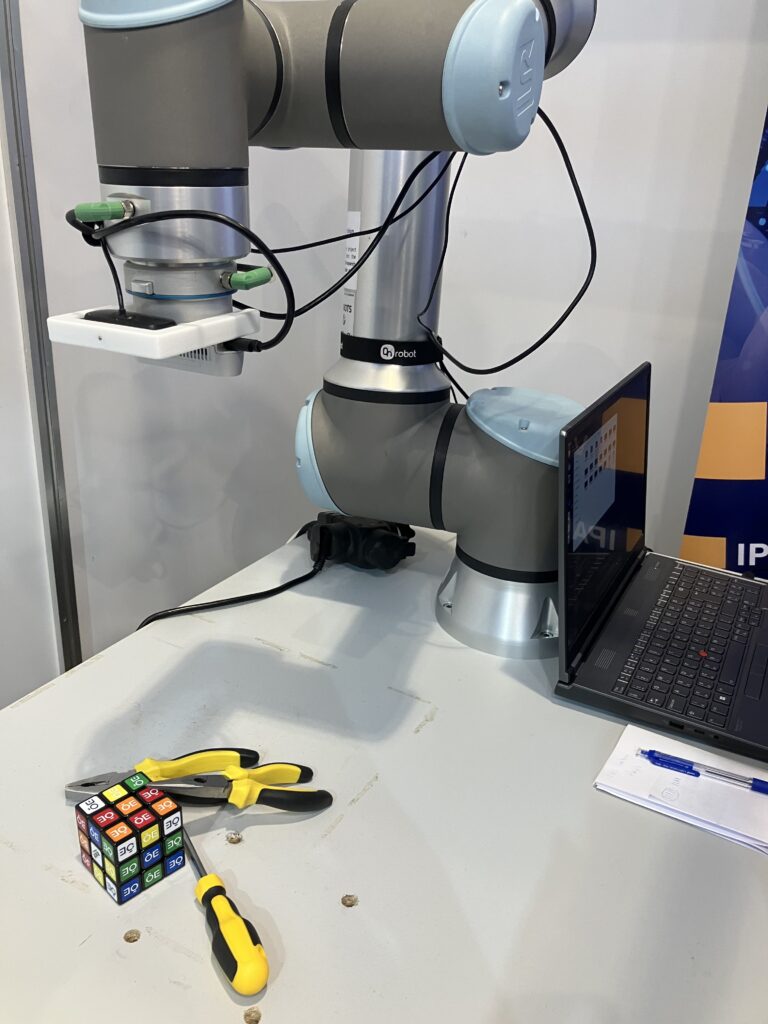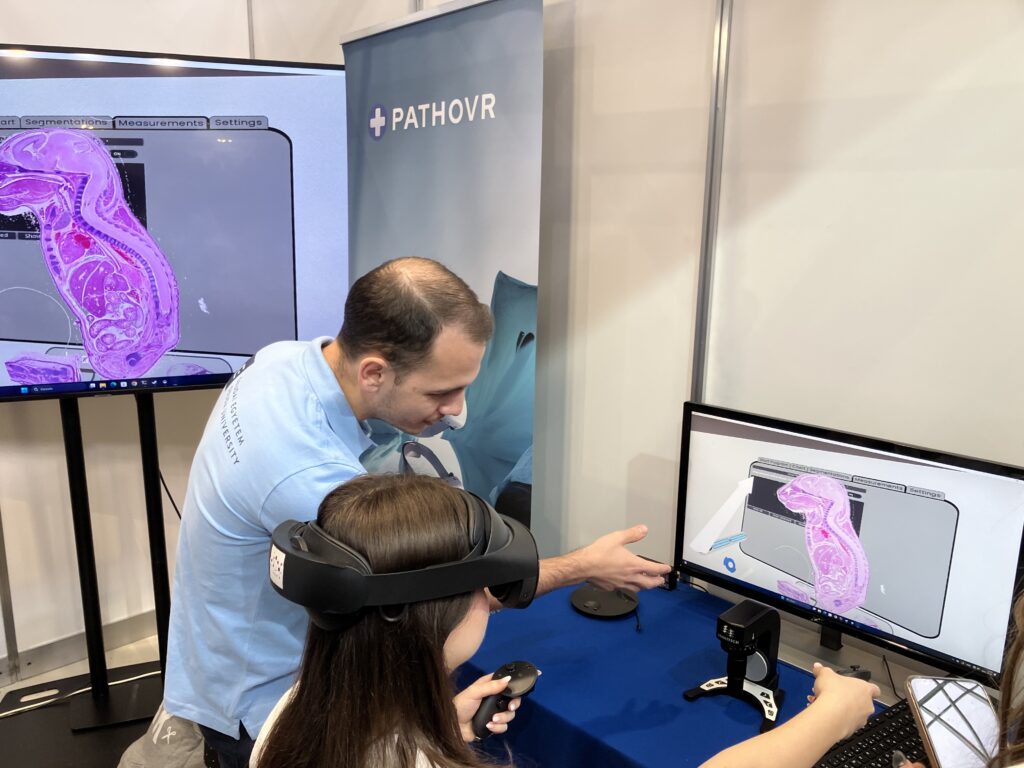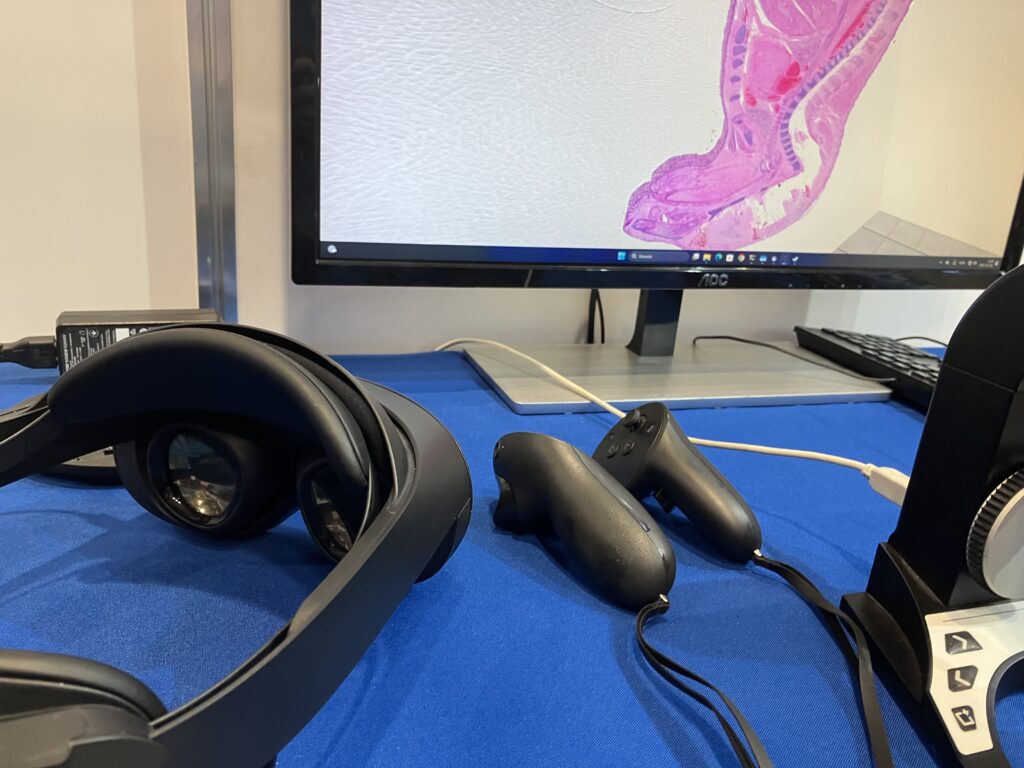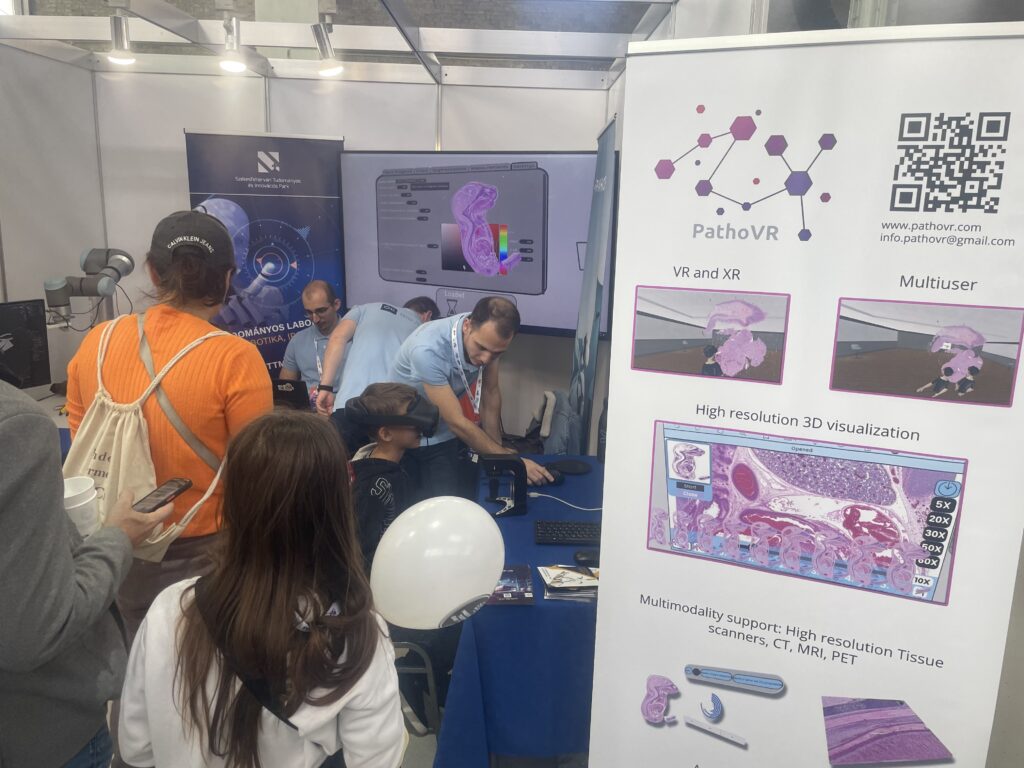Between October 27–29, 2025, Obuda University participated as an exhibitor at the Science Expo, where thousands of visitors had the opportunity to discover the university’s diverse research and development activities.
The university was represented jointly by three units: the Alba Regia Technical Faculty (AMK), the Antal Bejczy Center for Intellignet Robotics (BARK), and the Biotech Research Center (BRC). The aim of the exhibition was to provide students, professionals, and visitors with direct insight into the cutting-edge research conducted at Obuda University, and to showcase how engineering, information technology, and life sciences are interconnected within its projects.
The Alba Regia Technical Faculty (AMK) presented its projects and educational-research activities through a dynamic and visually engaging video, offering a comprehensive overview of its innovative engineering developments. Visitors could explore how a 3D-printed motion-tracking robotic arm operates — a system that allows a small robot arm to replicate the movements of another in real time. The demonstration effectively illustrated the principles of human–machine collaboration and teleoperation, highlighting the high quality of the practical engineering solutions developed by AMK’s students and faculty.
The Antal Bejczy Center for Intellignet Robotics (BARK) showcased a Universal Robots UR16e industrial manipulator integrated with a custom-developed 3D digitization system. This system can reconstruct real-world environments by capturing objects with known geometries from multiple viewpoints, identifying characteristic features in the images, and using optimization algorithms to build a precise 3D spatial model. The resulting realistic 3D Blender model can be used to generate training datasets for neural networks, enabling the expansion of real imagery with synthetic data to create virtually unlimited annotated datasets — a key asset in the development of AI-based vision systems.
The Biotech Research Center (BRC) presented the PathoVR project, which enables the 3D visualization and collaborative analysis of digitized pathological samples in a multi-user virtual environment. The system opens new horizons in medical imaging and diagnostics, allowing users to examine the spatial structure of samples and gain deeper insights into tissue alterations. PathoVR not only represents a significant advancement in medical research and education but also holds future potential in clinical decision support.
The joint participation of the three units demonstrated Obuda University’s interdisciplinary approach and its commitment to innovation, where engineering, informatics, and biotechnology converge in practical applications. The Science Expo visitors showed great interest in the university’s exhibits, leading to numerous professional discussions, new collaborations, and inspiring ideas throughout the three-day event.
